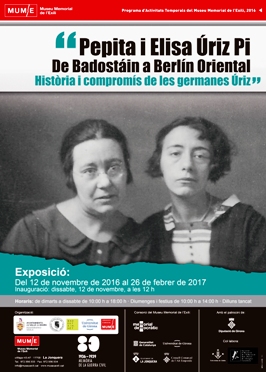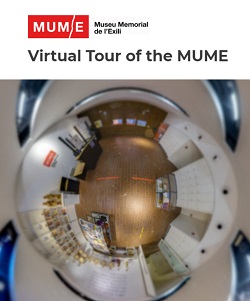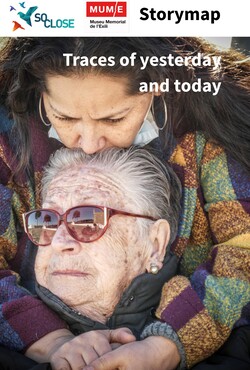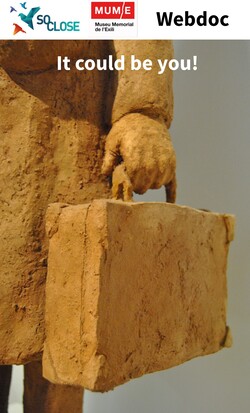Exhibition: Pepita and Elisa Úriz Pi. From to East Berlín. History and commitment of the Úriz sisters
- Title:
- Exhibition: Pepita and Elisa Úriz Pi. From to East Berlín. History and commitment of the Úriz sisters
- When:
- Sat, 12. November 2016 - Sun, 26. February 2017
- Category:
- Exposició Temporal Històric EN
Description
Exhibition: Pepita and Elisa Úriz Pi. From Badostáin to East Berlín. History and commitment of the Úriz sisters

Opening: Saturday 12 November 2016 at 12 noon
Exhibition from November 12, 2016 to February 26, 2017.
The opening ceremony will be attended by Sònia Martínez, Mayor of La Jonquera and President of the MUME Consortium, Alfonso Etxebarria Goñi, Mayor of the City of Valle de Egüés, Carme Garcia, Director General of Institutional Relations and with the Parliament, and of Salomó Marquès, Professor Emeritus of History of Education at the University of Girona.
COMPLEMENTARY ACTIVITY / Wednesday, November 16, at 12 noon
FREE ENTRANCE Screening of the documentary “Palabras de mamita”, made by Natàlia Carbonell, Carla Ferrerós, Robert Molina and Míriam Seguí. The documentary tells the biography of Joana Colom, a teacher born in Garrigàs in 1899, who went into exile in the Union Soviet after the Civil War.
Hours: Tuesday to Saturday from 10:00 am to 6:00 pm · Sundays and public holidays from 10:00 am to 2:00 pm · Closed on Mondays
If any of the many values represented by Pepita Úriz Pi (Badostáin of 1883 - East Berlin, 1958) and Elisa Úriz Pi (Tafalla, 1893 - East Berlin, 1979) were to be highlighted, this would be the deep social commitment they assumed in the throughout his life. Teachers from the Teachers ’Schools of Girona, Lleida and Tarragona, Pepita and Elisa played a leading role in a history at the United Nations and a projection of international scope in the Defense of Women’s and Children’s Rights.
Even more excellent was his contribution to the pedagogical advances of Spain in the early twentieth century, more than 50 years ahead of the teaching methods that would be implemented during the sixties.
Communist activists with the Second Republic, they promoted the first feminist organizations and the Spanish Federation of Education Workers (FETE), the main teachers' union. The assassination of Antonio Sesé, Elisa's union leader and husband, took a major turn in their lives in May 1937, as only death could separate them.
At the outbreak of World War II, they occupied a place of honor in the epic struggle of the French Resistance against Nazi domination, and were later forced into exile in the German Democratic Republic, specifically in Berlin. Oriental. There they lived until their deaths, Pepita in 1958 and Elisa a few years later, in 1979, without it being possible for them to see again the place where they had been born.
The script, research and texts are by Manuel Martorell-Elizondo (Navarra, 1953), journalist and historian. His studies have focused on the two main forces that challenged Francoism after the Civil War: the monsoonist PCE, which rose in arms through the Maquis, and Carlism led by Manuel Fal Conde and Javier de Borbón -Parma.
More information at the web of the Town Council of Badostáin.
Organised by : Concejo de Badostáin i Ayuntamiento del Valle de Egües (Navarra).
In collaboration with : Universitat de Girona, Universitat de Lleida and Societat d'Història de l'Educació dels Països de Llengua Catalana.




